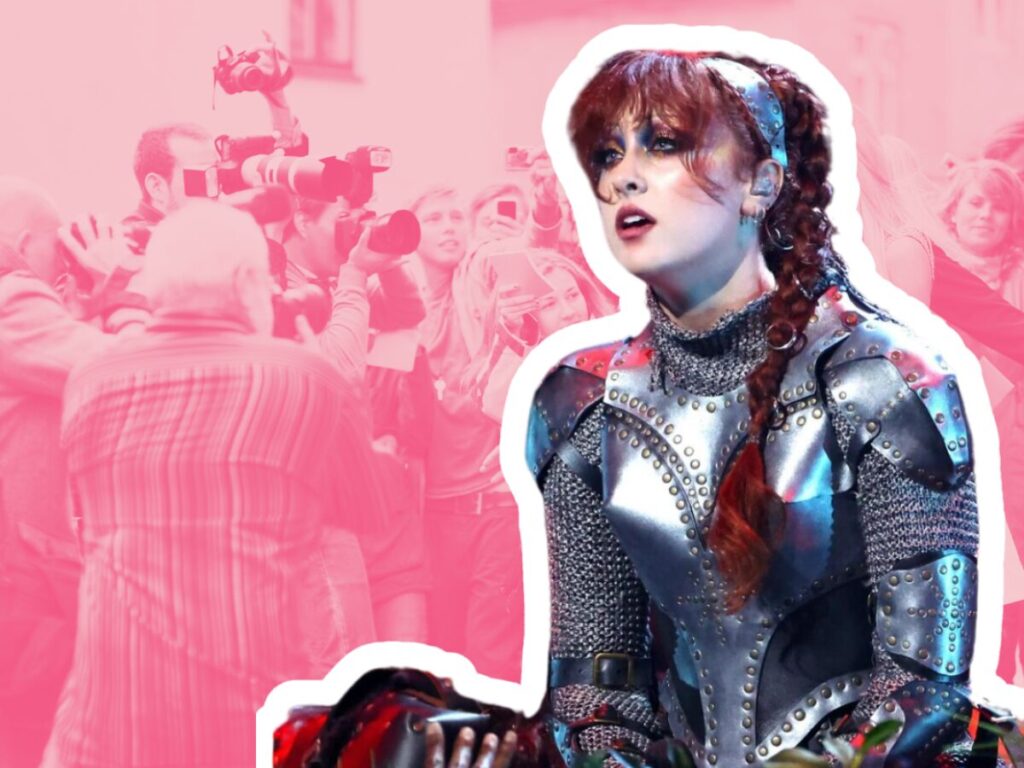With Chappell Roan’s quick ascension to being one of the biggest names in the musical world right now, it has become obvious that the star does not intend to fit into the mould cast by celebrities who have come before her.
Recently, the queer pop sensation has made headlines for her public criticism of “crazy” fandom culture, going viral for her remarks on life in the spotlight and her obligations as a celebrity. Prompted by an escalation in intense interactions with ‘fans’, Roan took to TikTok, releasing a series of posts in which she discusses her relationship with fame. She shares:
“I don’t care that abuse and harassment, stalking, whatever, is a normal thing to do to people who are famous. […] I don’t care that this crazy type of behaviour comes along with the job. […] That does not make it okay, that doesn’t make it normal. […] I don’t want whatever the f**k you think you’re supposed to be entitled to. […] It’s weird how people think you know a person just because you see them online. […] I’m allowed to say no to creepy behaviour.”
Alongside these posts, footage of Roan at the VMAs this month has been circulating online, in which she can be seen responding to a reporter and telling them to “shut the f*ck up.” When asked about this interaction at the event, she explained that “the carpet is horrifying”, and went on to explain that “you don’t get to yell at me like that.”
This has, unsurprisingly, provoked some strong reactions from celebrities and members of the public alike. Many have praised the artist for her firm stance on the issue, such as X user @tsleeplessnight suggesting that “this is what all celebrities would say if they were honest about fame”, while another, @casualbrina, commented: “So many celebrities have completely lost themselves, and even their lives because of fame. Why are you so opposed to someone trying to break that cycle”. Fellow musicians have also been quick to empathise with Roan, including Grammy Rising Star nominee Noah Kahan, who shared, “I’ll never forget leaving Clive Davis and the horrific sh*t photographers and paparazzi or whatever were saying to me. […] Love this @ChappellRoan way to stand up for yourself.”
However, there has also been an enormous amount of backlash to Roan’s complaints. Many are labelling her behaviour as “entitled” and implying that this level of so-called ‘familiarity’ with fans is simply her duty as a public figure and that, if she wishes to be famous, these obsessive fans are part of the package.
This should not be the case. Regardless of whether you are a figure in the public eye or not, everyone deserves to have a sense of privacy and the ability to set boundaries with others. As Roan herself posits,
“If you saw a random woman on the street, would you yell at her from your car window? Would you harass her in public? […] Would you try to dissect her life and bully her online? […] I’m a random b*tch, you’re a random b*tch. Just think about that for a second.”
For many celebrities, the setting of boundaries with fans is met with respect and civility. For example, actor William Shatner openly refuses to sign autographs, saying, “If I’m out and about with family […] and I do it for one [person], an instant line [of] 50 forms.” Similarly, The Beatles’ Paul McCartney “won’t typically do the photo thing these days”, and his bandmate Ringo Starr says simply, “I don’t autograph.” For these figures, these decisions are viewed as tactical and pragmatic, and yet characters like Taylor Swift, Billie Eilish, or Chappell Roan get slated for doing exactly the same thing. It begs the question of why, if there is a sense of duty that comes with being famous, there is not a universal attitude towards celebrity privacy, and why it so often reflects more poorly on female celebrities than male.
It is important to note that privacy and separation from the public sphere have always been important to Chappell Roan. Performing as a drag-like persona and using a stage name, the artist has repeatedly reminded fans that “Chappell” and “Kayleigh” are two separate figures. So yes, you can be an obsessed fan of Chappell Roan, but you have to remember that “Chappell Roan” is not a real person; she is a piece of performance art, a spectacle. If we could all understand it as children watching Hannah Montana achieve ‘the best of both worlds’, then it shouldn’t be difficult to comprehend now.
